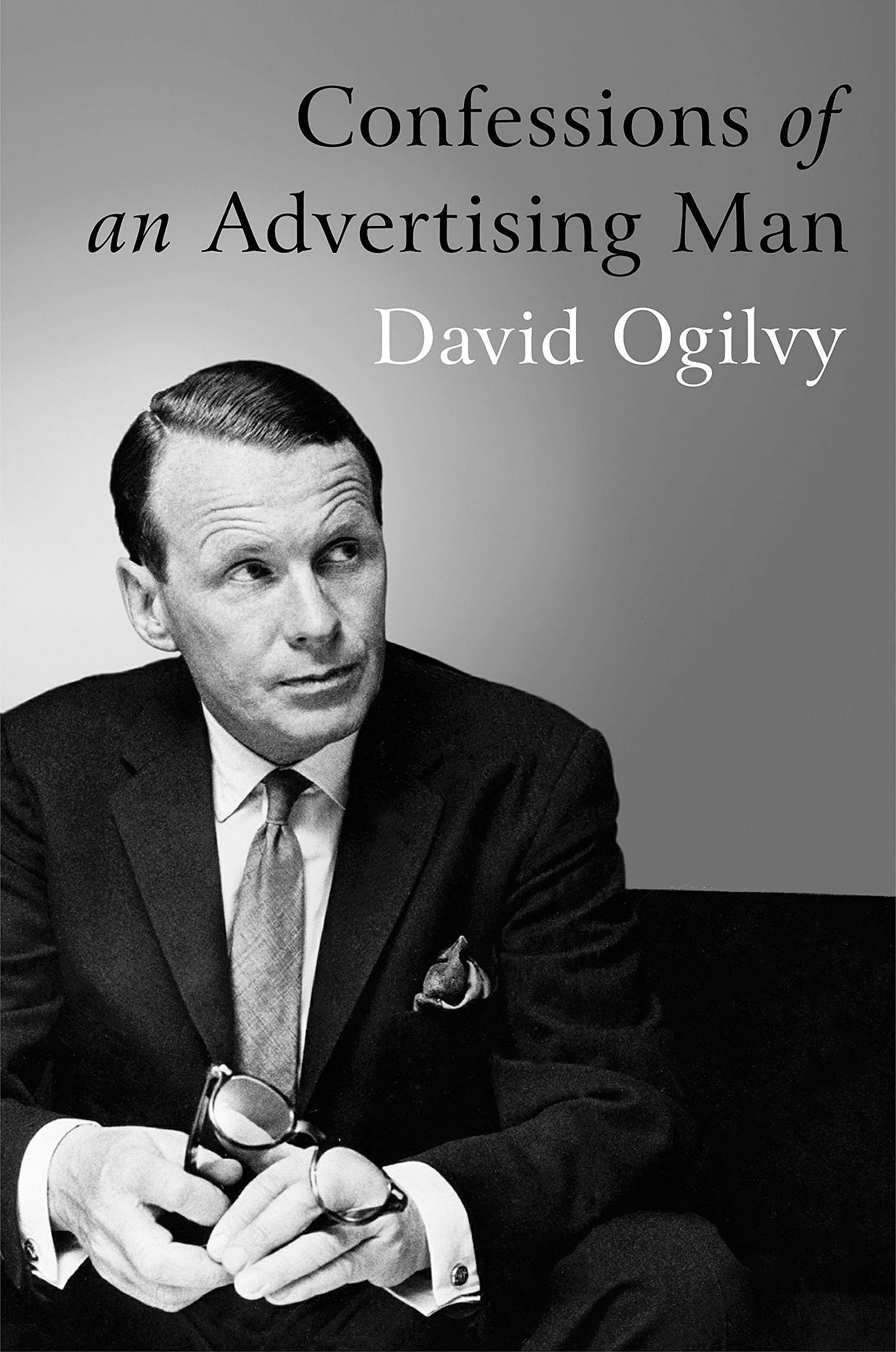📚Book Club - Damn, the internet blew up the advertising industry.
Context Collapse Book Club!: Confessions of an Advertising Man #7
It’s Book Club - a weekly post and thread about a book that matters. Let’s do this!
On tap: Week 7, the **last week** of David Ogilvy’s iconic Confessions of an Advertising Man.
We live in a sci-fi future. Not the sci-fi future we were promised, but a sci-fi future nonetheless.
I can video chat with someone on the other side of the world by clicking a button. I have a little slab of metal, plastic and glass in my pocket that has access to the sum of human knowledge on demand. If I want, I can buy an airline ticket for this afternoon and travel to the other side of the country.
There are also robots that fire missiles at human beings and secretive algorithms that decide whether you get a home loan or not and lots of other things. The future is complicated.
Ogilvy worked in advertising in a simpler time, the 1960s. Not morally simpler—LOL hhahahahahahahahaha no!—but technologically simpler.
And nothing illustrates that like reading Ogilvy’s 1960s writing about making television commercials in 2021.
I’ll prove that by making you an offer: Give me $5000, an iPhone 12 and some decent video editing software, and I could make you a ready-to-air video commercial that would net you $10,000 in sales. As long as it’s a decent product or service, odds are pretty good that I could make that happen.
But that offer wouldn’t have been possible in the 1960s, even if by some miracle of nature we had an iPhone-like gadget in 1968.
Let me explain: Modern smartphones allow you to quickly film commercial-quality video. Modern video editing software means you can quickly and inexpensively edit video without needing special equipment. The disruption of the traditional television/motion picture media complex means there are hundreds of places for your homebrewed commercial to show up—everywhere from YouTube to TikTok to Instagram to your adtech marketplace of choice.
This is a revolutionary thing, and one that’s profoundly disrupted advertising.
It hasn’t disrupted advertising agencies—there’s a profound need for creative talent, account specialists and administrators to handle the hard-work of putting content together—but it’s disrupted the act of creating advertising itself.
In 1968, even if you had access to a movie camera and editing services, your audience for your homebrewed commercial wouldn’t be any larger than your college class or hobbyist club. In 2021, your audience is as big as you can make it.
And that’s important.
With that said, cheers to Mr. Ogilvy for writing a book about his industry that is still relevant after 5+ decades.
Neal





